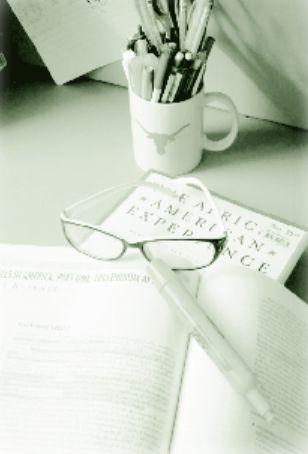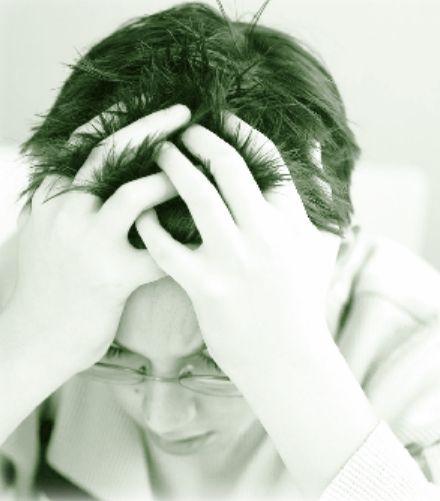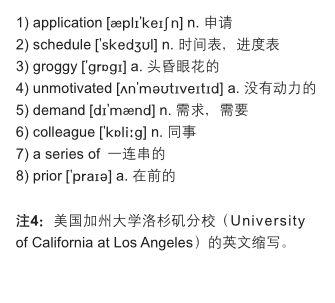复习诚可贵,熬夜不可取
2013-04-07byAllisonAubrey
by Allison Aubrey



挑灯夜读、临时抱佛脚对面临大考的同学、特别是高三的学生来说,一定是家常便饭。Grace在学生时代也经常熬夜复习,虽然明知效果不大,但看到别人都在复习,自己却早早睡到床上,不禁有些心虚,总想着还有东西没看完。其实与其临时抱佛脚,倒不如平时好好复习,考前你需要的是充足的睡眠哦!3月21日是世界睡眠日,CE:Teens希望这个日子能引起大家对睡眠的重视。
The best part about senior year注1 of high school—according to rising 12th graders David LoBosco and Patrick Ottolini—is that junior year is now behind them, as is some of the pressure. David LoBosco: Last year, I took a lot of, like, hard classes.
There were AP-college level courses注2, the SAT注3 to prep for. Eleventh grade is tough—a makeit-or-break-it year for college 1)applications. So, what did all this mean for Davids 2)schedule?
据升上12年级的学生戴维·洛波斯科和帕特里克·奥托利尼所言,升上高年级最大的好处就是——低年级已经成为过去,一部分的压力也随之被抛在身后。戴维·洛波斯科:去年,我上了很多挺难啃的课程。
(他们)不仅要上大学预修课程,还要准备SAT考试。11年级很不好过——申请大学的成败就在此一年间。那么,这一切对戴维的作息时间表又意味着什么呢?
LoBosco: I would start homework right when I got home and Id be up until, like, one, 1:30 doing homework. So…
Allison Aubrey: And how do you feel the next day when you stay up to 1:30?
LoBosco: Id feel really tired and 3)groggy, and 4)unmotivated and not wanting to do it all over again, I guess.
Especially when the day begins at 6:30 in the morning. Davids friend, Patrick, who had a similar schedule last fall, says its hard to stay awake.
Patrick Ottolini: Especially through, like, the middle of the day and everything. It just, like, catches up. Its not good.
And a new study of high school students published in the journal Child Development finds this experience is typical. When students dont get the sleep they need on a given night, the next day, all kinds of things can go poorly. Professor Andrew Fuligni of UCLA注4 led the study.
Andrew Fuligni: What we wanted to do is to get a very detailed picture of what the daily life of teenagers is like and how they manage different 5)demands in their life.
To do this, he and his 6)colleagues asked high schoolers to complete a nightly checklist with 7)a series of questions about their activities, such as—
Fuligni: Did I eat a meal with my parents? Did I study that night? How much did I sleep the 8)prior night?
They also answered questions about how they felt and how they performed at school.
洛波斯科:我一回到家就开始做作业,熬到一点、一点半,一直在做功课。所以……
阿利森·奥布里:你熬夜到一点半,第二天感觉如何?
洛波斯科:我会觉得很累,昏昏沉沉的,没有干劲,不想再这样来一遍了。
尤其是第二天早上六点半又要早起。去年秋天,戴维的朋友帕特里克的作息时间也差不多。他说,这样很难保持清醒。
帕特里克·奥托利尼:特别是在一天过半或正在做事情时,倦意来袭。这样不好。
发表在《儿童发展》杂志上的一项关于高中生的新研究发现,这种情况很典型。如果某一天晚上学生没有得到所需的睡眠,第二天,他做各种事情都可能表现不佳。加州大学洛杉矶分校教授安德鲁·富利尼是这项研究的领头人。
安德鲁·富利尼:我们想了解青少年日常生活的具体细节,以及他们是如何处理生活中的各种需求。
为此,他和同事们让一些高中生填写了一份问卷,上面有一系列关于他们夜间活动的问题,例如——
富利尼:我和父母一起吃饭了吗?我那天晚上学习了吗?我前一天晚上睡了多长时间?
他们还要回答关于他们的感受以及在学校的表现等问题。
注1:在美国,“senior year”指12年级,也就是高中阶段的最后一年。而“junior year”指高中第三年,即11年级。很多学生要在11年级的第二学期进行一系列考试,想考大学的学生一般在此期间寻找合适的大学。
注2:大学先修课程是由美国大学理事会(College Board)赞助的高中先修性大学课程,通常比一般的课程深入和详细。
注3:由美国大学理事会委托美国教育测验服务社(Educational Testing Service,简称ETS)定期举办的世界性测验,是美国各大学申请入学的重要参考条件之一。
Fuligni: Did you have trouble or difficulty on a test that day? And did you have difficulty understanding things that were being taught in class?
And Fuligni says what he found is that on nights when students reported fewer hours of sleep, they reported problems at school, too.
Fuligni: What we learned is that when kids 9)cram—particularly when they cram 10)at the expense of sleep—the next day, they are more likely to have 11)academic problems, even though they sort of spent more time studying that night.
The results do not surprise sleep expert Helene Emsellem. She directs the Center for Sleep and Wake Disorders in Chevy Chase, Maryland, and treats lots of teenagers. She says what people dont realize is that learning and sleep are 12)inextricably connected.
Helene Emsellem: Several things happen during sleep. We dont just physically restore ourselves.
We also 13)process all the information weve collected in a day.
Emsellem: We take the information and we organize it, and we make all the connections.
富利尼:那天你在做测试时是否觉得力不从心或者感到困难?你是否在理解课堂教授的知识上感到有困难?
富利尼说,他发现学生们说睡眠较少的那些晚上,他们也会在学业上遇到问题。
富利尼:我们了解到,当孩子们赶功课——尤其是当他们牺牲睡眠的时候——第二天反而更可能在学业上遇到问题,尽管他们前一天晚上花了更多时间去学习。
这一结果并未让睡眠专家海伦妮·安姆瑟勒姆感到惊讶。她负责管理位于(美国)马里兰州切维蔡斯地区的睡眠觉醒失调症中心,为很多年轻人做过治疗。她说,人们没有意识到学习和睡眠有着千丝万缕的联系。
海伦妮·安姆瑟勒姆:在睡眠的过程中有几件事情会发生,睡眠并不只是让体力得到恢复。
我们同时还在处理一天当中收集到的所有信息。
安姆瑟勒姆:我们提取这些信息,加以组织,并建立各种关联。
So when a student sits down the next day for a quiz…
Emsellem: If a question isnt 14)worded exactly the way the information was presented in class, you have drawn enough connections during the night to pull that information out and answer that question correctly.
Maybe this explains why student Patrick Ottolini has realized that its not always the best 15)strategy to stay up late and cram.
Ottolini: If its like a big test, no, its not going to work at all.
Instead of cramming, hes learned from experience its best to 16)pace yourself and find smaller 17)chunks of time each day to study. His friend David says if you need to, the night before a quiz, its better to get some sleep and set the alarm.
LoBosco: You know, you wake up early in the morning, and you study for that.
Helene Emsellem says the most helpful advice she gives families—
Emsellem: Having a lights-out time in the house where everyone goes to sleep.
Which she says is ideal for teenagers and good for their parents, too.
所以,当某个学生第二天坐下来做测验时……
安姆瑟勒姆:假如一道问题的表述形式和你在课堂上看到的并不完全一致,其实你已经在晚上(睡眠中)建立起了足够多的关联来提取出那条信息,并正确回答问题。
这也许可以解释学生帕特里克·奥托利尼为何意识到“开夜车”熬夜学习的策略并非妙计。
奥托利尼:要是面对的是一次大考,这种做法是完全应付不来的。
他从经验中学到,最好的做法是调整自己的步调,利用每天零散的时间学习,而不是临时抱佛脚。他的朋友戴维说,如果你有需要,在测验的前一天晚上最好还是睡觉,调好闹钟。
洛波斯科:清晨一大早起床,然后学习。
海伦妮·安姆瑟勒姆对学生的家人提出最有帮助的意见是——
安姆瑟勒姆:为全家制定一个熄灯时间,一到点,每个人都去睡觉。
她说,这对青少年及其父母都有好处。
作息小建议
每一天都要保持规律的睡眠作息。如果你每天的睡眠作息时间波动幅度超过60到90分钟,就可能会对学业、情绪和健康产生负面影响。
每晚尽量保持8到9小时的睡眠,这点对初、高中年龄段的青少年尤为重要。
保持规律的学习作息。熬夜学习会令青少年无法获得足量的睡眠,并可能形成不规律的睡眠习惯。在睡眠环境中(尤其是睡前一小时),应尽量避免接触高科技事物,如:发短信、用电脑工作或玩游戏、看影片等。这些活动会干扰入睡。如果你晚上开着手机,还可能会在夜里被电话吵醒。
从你的饮食中除去咖啡因,特别是在睡前3至5小时。
